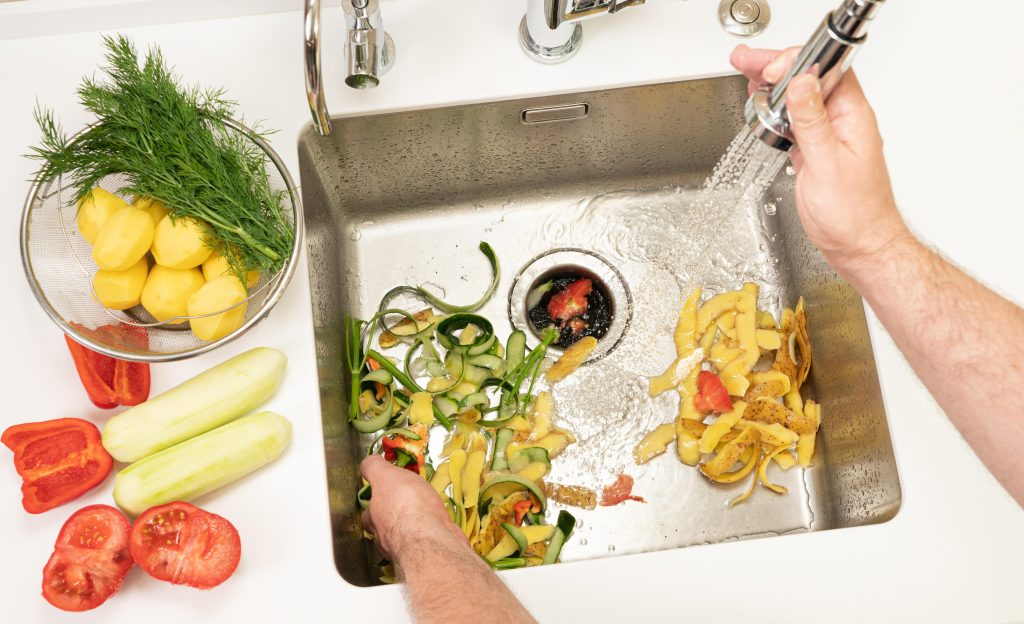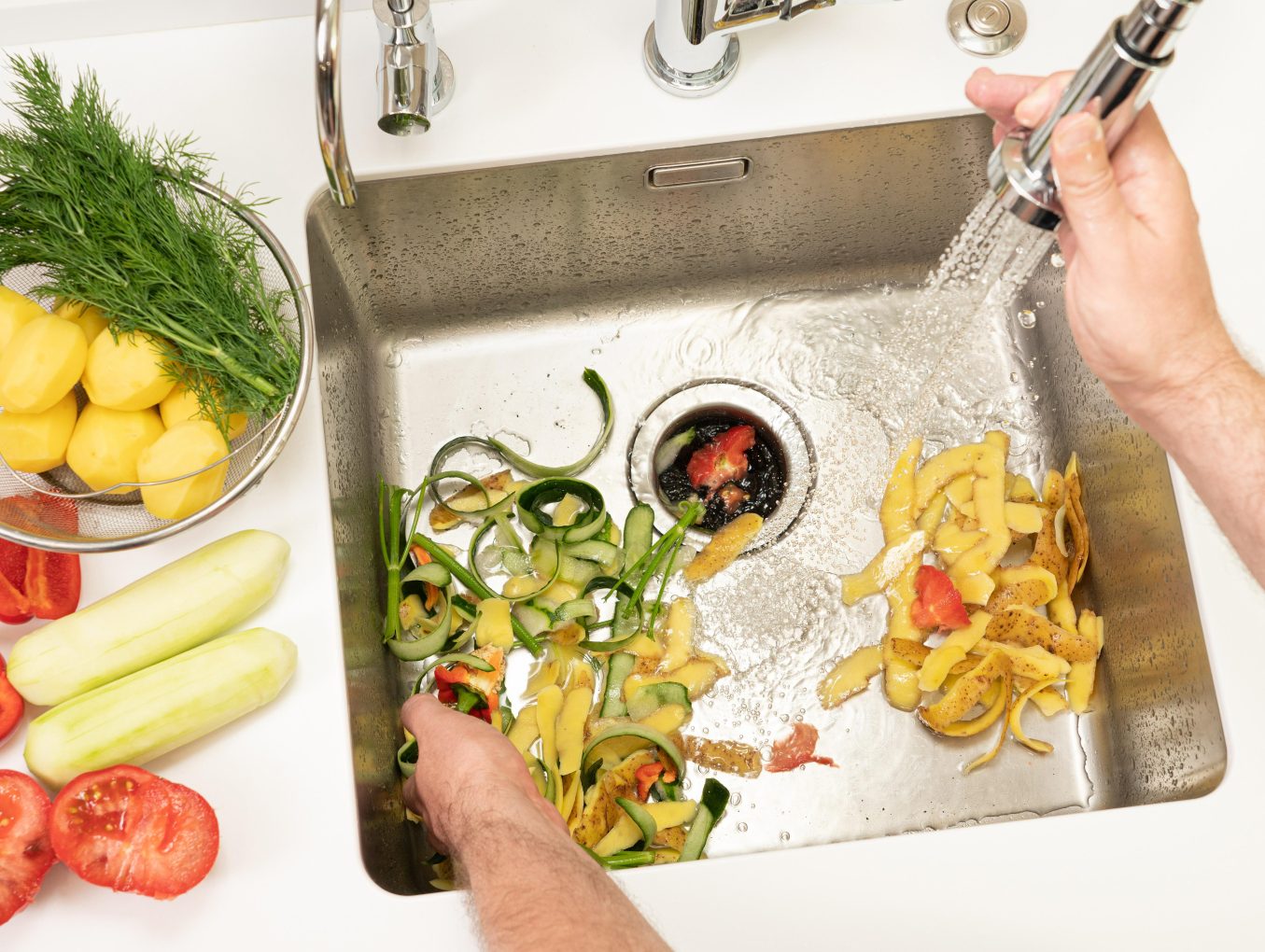Imagine a typical day, going about your daily routine when disaster strikes—a clogged drain. The water refuses to go down and quickly backs up in your sink or bathtub. You feel frustrated and stressed as you contemplate what might have caused this messy situation.
In 2022, homeowners in the US shelled out an average of USD$6,000 (around AUD$9,000) for repairs and maintenance. A common reason for this expense is blocked drains. Though it’s a common problem, this plumbing issue is preventable. By understanding the common causes of clogged drains, you can take proactive measures to keep your drains flowing smoothly.
This article will explore six common household habits that often lead to blocked drains, as well as practical tips for avoiding them. So, dive in and get to know what not to do around drains.
- Neglecting Proper Food Waste Disposal

The kitchen is a hub of many activities and a primary source of potential drain blockages. As you prepare meals or toss food scraps, bits of food can get washed down the kitchen sink drain. Over time, these tiny particles will eventually accumulate and form a sticky clog.
The best way to prevent this is to scrape plates and cookware before washing them. You can also use a sink strainer to catch any food residue. More importantly, consider composting organic waste for a more sustainable solution. A study shows that food accounts for over 28% of garbage sent to landfills and incinerators. So, make a habit of diverting leftovers, peels, and scraps from your trash bin. This will not only reduce potential blockages in your drains but also help protect the environment.
- Pouring Grease And Oils Down The Drain
That sizzling pan of bacon? It’s delicious, but not good for your pipes. Once the grease and oils find their way down the drain, these substances will solidify and coat the inside of pipes, causing buildup over time. A complete blockage is almost inevitable when solidified fat combines with other debris.
However, if you’re in a situation where your sink is already clogged, chemical solutions might provide some relief. You can also opt for homemade remedies like boiling water or a mix of vinegar and baking soda. These methods can help break down the blockage and remove oil residues.
To prevent a recurrence and costly repair, it would be best to always dispose of used cooking oil and grease properly. Collect these oily particles in a sealed container and drop them off at a designated collection facility for proper disposal.
- Using Too Much Toilet Paper

Did you know an average person uses around 57 sheets of toilet paper a day? That adds up to over 20,000 sheets in a year! While having an ample supply of bathroom tissue is essential, it isn’t doing you any favours most of the time. Flushing excessive toilet paper in one go can overwhelm the drain’s capacity, especially if the paper is thick or layered. Moreover, regular toilet paper is made from cellulose fibres, which don’t break down easily. So, consider using flushable wipes or septic-safe ones as an alternative to reduce bulk and potential obstructions.
It’s also worth paying attention to warning signs such as slow draining or loud gurgling noises coming from your toilet. These indications may suggest a partial blockage within your plumbing system. You can attempt to resolve the issue by using a plunger or an auger to dislodge any clogs in the pipes. However, if the problem persists, you must enlist the help of blocked drain services Melton. Qualified plumbers will conduct a thorough inspection, diagnose the problem accurately, and provide practical solutions to resolve the blockage and restore proper drainage.
- Allowing Hair To Accumulate
Bathroom drains often fall victim to hair accumulation and debris buildup. As hair is shed from the body, it clumps with soap scum and other substances in your shower or bathtub drains. This can eventually form an obstruction, particularly in older pipes worn down by corrosion or age.
Installing a bathroom drain filter or screen can help prevent hair and other debris from entering the pipe. This device works by trapping hair strands and other debris, making it easier to clean and maintain. Just choose a floor drain strainer that fits your pipe size, has small enough holes to catch particles, and is durable enough to withstand constant use. Remember to regularly clean this device to maintain optimal water flow and performance.
- Overusing Chemical Drain Cleaners
Reaching for a chemical-filled drainage cleaner is tempting when things get clogged up. But these products shouldn’t be relied on constantly, as they can damage your pipes and contaminate the water supply. The acidic or caustic ingredients in many chemical cleaners can also find their way into rivers and streams, putting aquatic life at risk.
It’s important to be aware of the potential risks associated with overusing chemical drain cleaners and consider alternative, safer methods for maintaining and unclogging drains. Prioritising environmentally friendly and non-toxic solutions can help protect your plumbing system and the overall well-being of the environment.
- Not Performing Regular Maintenance
Occasionally, people overlook the significance of maintaining their home pipes and drain until an issue arises unexpectedly. A good rule of thumb is to have your drains or plumbing system inspected and cleaned regularly. For example, a hydro-jetting service can help clean your pipes from the inside, removing any clogs or potential blockages before they escalate into major problems.
Regular maintenance or repairs can also help prevent unanticipated plumbing concerns and possible water damage due to flooding. These proactive steps will ensure your household plumbing is in top condition now and for many years.
Keep Your Drains Free And Flowing
Maintaining clear and functional drains is essential for your plumbing system and overall peace of mind. You can effectively keep your drains free and flowing by implementing preventive measures and adopting good habits.
Knowing when to seek professional assistance for more complex issues ensures timely resolutions and prevents further damage. So, embrace these practices and prioritise drain maintenance in your household to enjoy the benefits of a smoothly running plumbing system.

